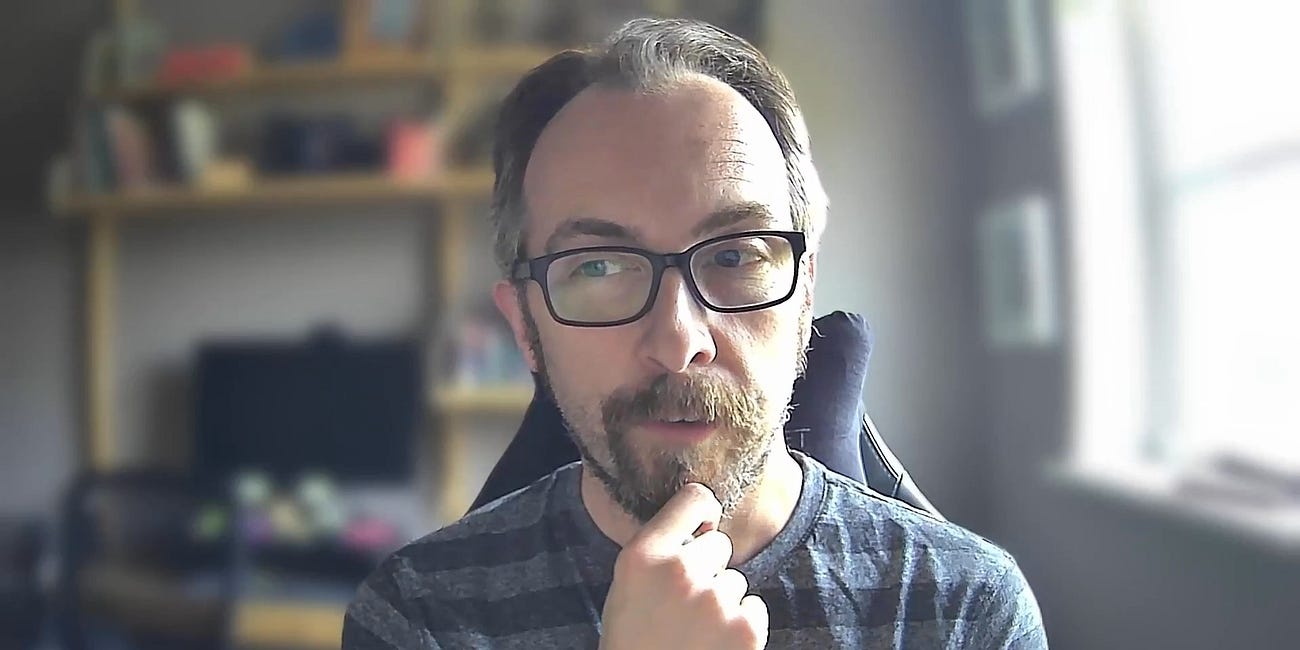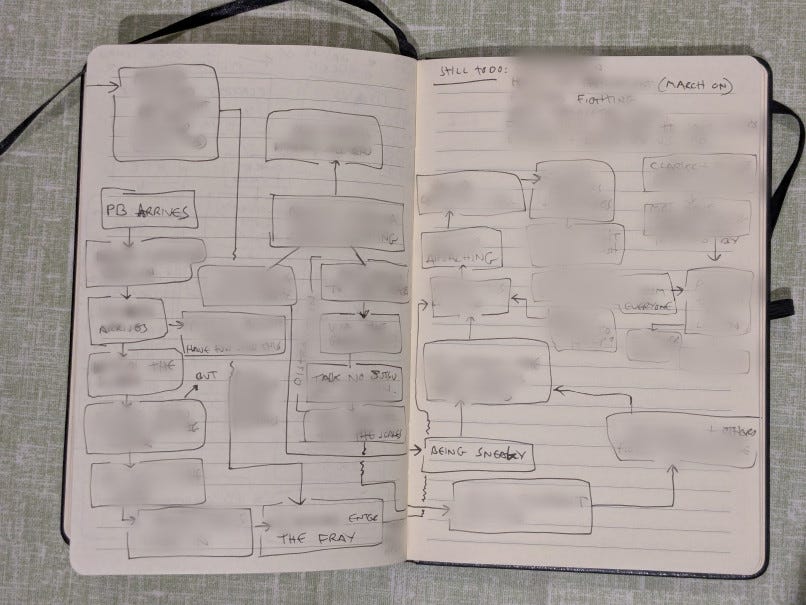Why does planning work so well on paper?
Sometimes, technology just gets in the way
I’m in the final season of Tales from the Triverse, the weekly serial I’ve been writing and publishing since 2021. That’s three and a half years and 340,000 words. It’s a big project, and I’m acutely aware of the tiny target I need to hit if I’m going to land the ending.
Astronaut Michael Collins wrote about the challenges of calculating the return trajectory from the Moon:
“On the return trip, the atmospheric “re-entry corridor,” or zone of survivability, or whatever you wanted to call it, was only forty miles thick, and hitting a forty-mile target from 230,000 miles is like trying to split a human hair with a razor blade thrown from a distance of twenty feet.” Michael Collins, Carrying the Fire: An Astronaut’s Journey
Not to compare my fiction serial to the moon landings, but sometimes it feels like I’m attempting something similar, albeit on a rather smaller scale.
The final word count of Triverse will be in excess of 350,000, yet the final chapter will be about 2,0000 words long. Even if I consider the ‘ending’ to consist of multiple chapters, it comes out at about 8,000 words. That’s a pretty small target to hit after such a long journey.
And that’s just looking a the raw word count! There are many more important factors for a successful ending, more ephemeral things like emotional response, thematic coherence, plot clarity and so on.
I’ve known from the beginning the rough shape of the ending, and I’ve tinkered with it for years. The specifics of the Triverse ending have shifted and come into focus over the course of the serial’s run. Yet now I’m here, at the point of actually writing it, I realised that I still didn’t have it worked out to a sufficient degree.
I’ve talked before about my massive Triverse Scrivener project, which houses the manuscript and all my research and planning:
In this case, it wasn’t enough, and the keyboard and monitor was proving too restrictive. I have dozens of characters and plot points to wrangle into a satisfying conclusion, and that just wasn’t possible in the structured confines of Scrivener. As flexible as it is, it’s still designed by someone else. All software requires us to configure our workflow to fit the whims of the designer.
I didn’t want Triverse’s finale to be influenced by someone else’s structural framework.
And so, I switched off the computer and went to pen and paper.
I’ve blurred the image because it’s inevitably full of massive, humungous spoilers. I’ll try to remember to update this post once Triverse is done with the unredacted versions.
This mindmap spreads over many more pages. I began with a handful of boxes, representing the starting point for my characters. The flowchart then proceeds to track their antics, noting how and when they intersect, weaving a timeline of multiple threads into something I can convert to chapters.
The ending has multiple strands, with several events happening simultaneously. Figuring out the timing and overlap of these things was crucial, and that then feeds into how the chapters will hop between what’s going on.
It was a joyous and freeing experience, as well as being practically useful. What had previously been creating a lot of stress shifted into a fun, creative, problem-solving session. I was no longer staring at a huge number of words, unsure of how to wrangle them. Instead I was sketching around the page, drawing connections, taking up as much space as I wanted and allowing the page to be loose and personal. Other than the edges of the paper, there were no constraints to this method, and no requirement to adapt to someone’s else’s workflow. It felt loose, and freeing, and full of potential.
How about you? When do you turn to pen and paper? Or, vice versa, when do you find a digital workflow more useful? What techniques do you recommend?
If you’re someone who likes to embrace an analogue approach to creativity, I recommend checking out
’s newsletter. Here’s a good starting point:As it happens, Tim’s also just published the third book in his fantasy Robin Hood retelling. I’ve read the first book in the series and highly recommend checking it out.
Meanwhile.
Don’t forget that the science fiction category of the Lunar Awards is now open for submissions! Find out how it works here:
Oh, and I’m picking the winner! Can’t wait to read the entries.
Some bits:
This was funny:
This was interesting:
Thanks for reading.









Paper works. It just does. Textural. Creative. Ancient.
I always use pen and paper for planning anything. I find tech gets in the way and I spend hours figuring out how to do something and very little time actually doing it
I also end up printing loads of things because I absorb info better from paper than from a screen.